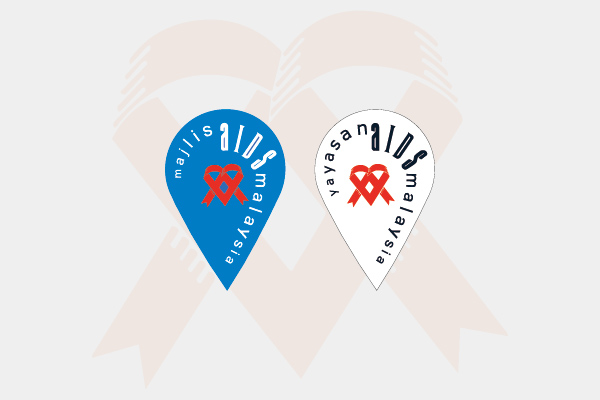Call for Expression of Interest (EOI) from Individual Consultant(s) to develop HIV Position Paper—Sexual Transmission among Key Populations

Snapshot of HIV & AIDS in Malaysia 2017
March 6, 2019
A Call for Expression of Interest (EOI) inviting local NGOs/CBOs to implement “Differentiated HIV Service Delivery for Key Populations (DHSKP)” for the Global Fund Transition Grant.
May 24, 2019Call for Expression of Interest (EOI) from Individual Consultant(s) to develop HIV Position Paper—Sexual Transmission among Key Populations
BACKGROUND
Since 1986 when the first HIV case was detected in Malaysia, HIV has become one of the country’s most serious health and development challenges.
Malaysia has a concentrated epidemic among key populations with estimated HIV prevalences of 16.3% (IBBS 2014) among people who inject drugs (PWID), 8.9% among men who have sex with men (MSM), 5.6% among transgender (TG) people and 7.3% among female sex workers (FSW).
At the beginning of the epidemic, HIV was mostly spread through sharing of needles among PWID. However, in recent years, a rapid rise in sexual transmission of HIV was observed. New HIV infections associated with injecting drug use have declined significantly from 60-75% in the 1990s to 11.1% in 2016 while sexually transmitted HIV has increased from about 5% in the 1990s to 84.3% in 2016 (MOH 2016).
Through the sustained efforts of government and non-government agencies, new cases were almost halved from 28.4 cases per 100,000 people in 2002 to 11.0 cases per 100,000 people in 2016 (MOH 2016). The number of people living with HIV (PLHIV) in 2016 was estimated at 97,586. At the end 2016, about 37%-40% of the estimated number of PLHIV have been enrolled in treatment.
The Ministry of Health (MOH) National Strategic Plan for Ending AIDS (NSPEA) 2016-2030 seeks to fast-track the United Nations Sustainable Development Goals (SDGs) by 2020:
- 90% of PLHIV are tested and know their status;
- 90% of those eligible for antiretroviral therapy (ART) are enrolled on ART, and
- 90% of those on ART have achieved viral load suppression.
In order to achieve the NSPEA goals, the issues related to key populations who are most vulnerable to HIV need to be addressed. To achieve the target of reducing new HIV infections among key populations, a large-scale increase of programmes and the creation of enabling social and legal environments are needed. To this end, MAC endeavours to develop position papers that will provide critical analysis of current facts, data and research literature that communicates the current HIV trends and emerging issues.
The Sexual Transmission among Key Populations position paper will state the values that underpin the national AIDS response and issues related to it. The objective is to identify, accept and commit to a set of values that supports HIV prevention, treatment and care programmes in Malaysia.
OBJECTIVES:
In general, the Position paper will seek to initiate a process to:
- Leverage the mandate and reach of key stakeholders to engage in the design of the framework that can give support to actions at the state, national and regional levels.
- Recognise the critical area of concern for action; endorse and build a mechanism to accelerate the implementation and a systematic follow-up.
EXPECTED RESULT:
- The position paper will be aimed at those with leadership roles in HIV prevention, treatment and care to strengthen the core HIV activities, key actions for an effective response and core principles underlying those actions.
- It also identifies how national partners can scale up prevention activities related to HIV among key populations at the country level.
- The position paper will be used as a guide in the design and application of the principles of combination prevention systematically and consistently in HIV programme planning to improve its outcomes.
THE POSITION PAPER WILL:
- Use evidence, e.g. statistical evidence, events and reports to support the position.
- Validate the position with authoritative references or primary source quotations.
- Examine the strengths and weaknesses of the position.
- Evaluate possible solutions and suggest courses of action.
BUDGET
Consultancy rate would be USD150/per day. Candidates with a strong academic background and/or extensive experience in public health, HIV/AIDS, and possess project assessment/evaluation skills are encouraged to apply with the proposed budget.
DURATION OF THE CONSULTANT ASSIGNMENT
A total number of 10 days of engagement. However, the timeline is negotiable to suit the consultant’s schedule no later than 3rd May 2019.
CRITERIA FOR THE CONSULTANT
- Sound knowledge of the HIV and AIDS epidemic in South East Asia and in Malaysia particularly
- Minimum five years’ experience working with PLHIV and key populations.
- Extensive experience in conducting policy implementation review
- Good communication and writing skills
- Familiarity working with government and civil society organisations;
MAC encourages members of Partner Organisations and PLHIV to apply.
If interested, please submit an EOI Letter and Curriculum Vitae (CV) on or before 6:00pm on 14 Apr 2019 to [email protected], c.c. [email protected] .
Only shortlisted candidates will be notified.

